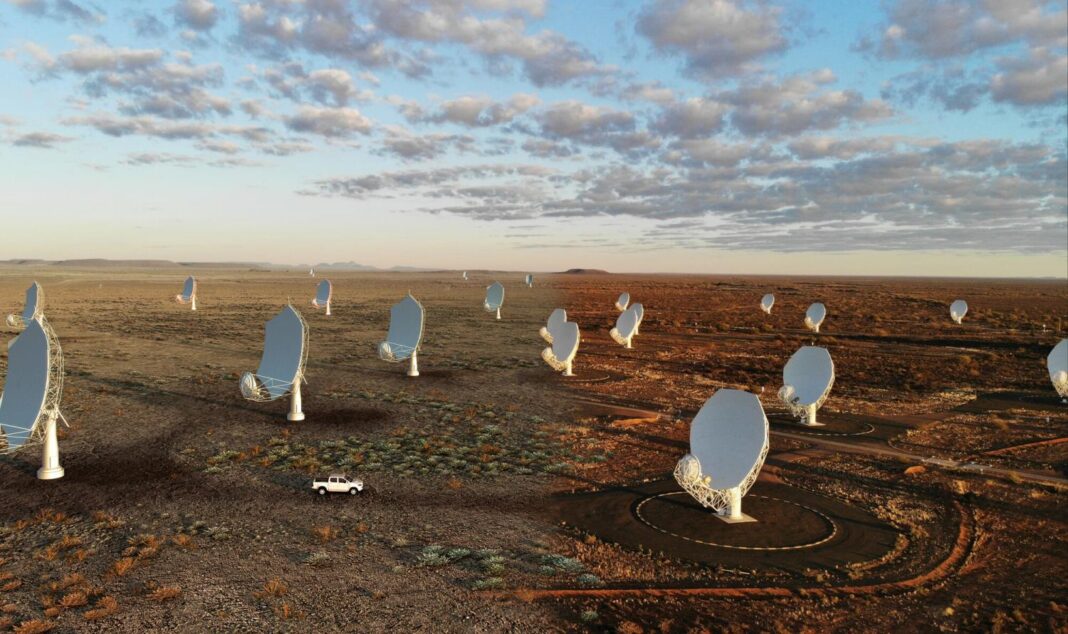By Simon Nare
South Africa is well on track to make astrotourism a reality and the centre of this venture is the Square Kilometre Array project in the Northern Cape.
Built in the middle of nowhere, the collection of 64 telescopes continuously collects data that is shared with a number of countries.
Although almost entirely funded by South Africa, other countries like Germany, Italy, Netherlands, China and Canada also contribute.
Data sector manager Andrea Walker told reporters during a tour this week that the centre’s second phase, which would be built soon, would be appealing to tourists.
Walker said one of the priorities of the centre would be to lure and encourage youngsters in the area to have a keen interest in scientific research.
Tourism Minister Patricia de Lille spent Thursday with officials touring the operation centre to get first-hand knowledge of how everything works.
It is a totally different world in the operation centre. No cellphone or any other electronic devices are allowed, and cars are also not permitted on the premises, with visitors being transported by the centre’s minibuses.
Hosted by the Science and Innovation Department, it is one of the largest science research centres in the world, and has already attracted some leading scientists and engineers.
The data that is collected by the telescopes each day is so massive that there are not enough scientists to sort through the information every day.
Addressing residents at the Carnarvon Stadium during a star gazing evening, De Lille said that Science and Innovation Minister Blade Nzimande had tabled a strategy on astrotourism to Cabinet.
“Our focus for this year’s World Tourism Day is astrotourism and Minister Blade Nzimande and I have just presented the astrotourism strategy to Cabinet,” she said.
“Cabinet approved this strategy for public comment period just over two weeks ago. Through this strategy we will showcase all South Africa has to offer with a new area of tourism as we show off the world’s clearest and most beautiful sky.”
De Lille added that she wanted astrotourism and agriculture to be a catalyst for tourism in this region and that it must benefit rural communities.
The Northern Cape was chosen to host the telescope because it has less signal traffic. When the site was approved, mobile networks had to pack up and leave the area.
Some farmers vacated the area because they were not allowed to use their cellphones and other means of communications.
Those who were willing to leave were bought out and those who wanted to stay had to conform to strict rules, with other means of communication provided to them.
Signals, especially those from cellphones, are deemed very risky to telescopes. One cellphone can do some serious damage and wipe out crucial data.
For that reason, if you are found to have smuggled in a cellphone and it does damage to data collection, you could be prosecuted and spend three months in jail.
INSIDE POLITICS

